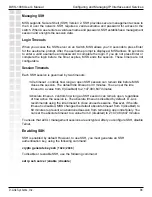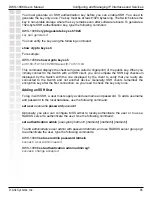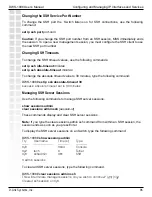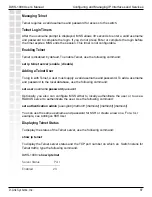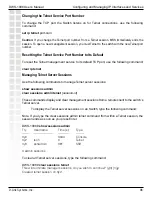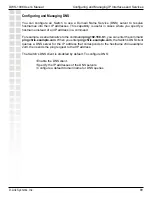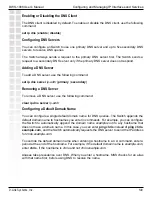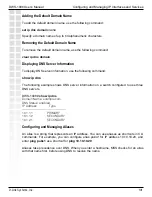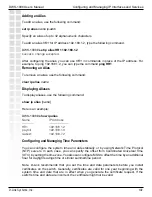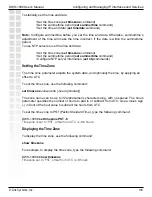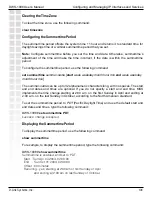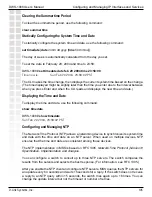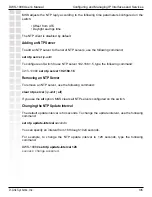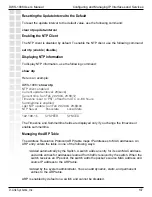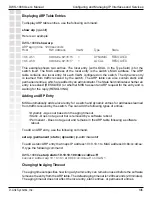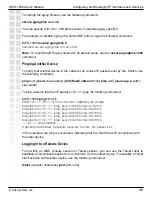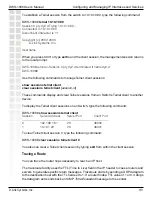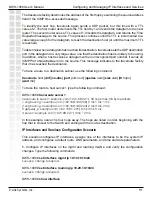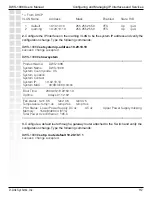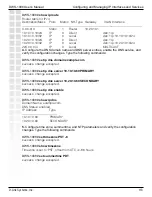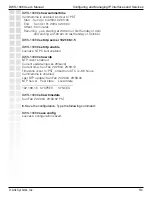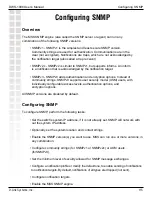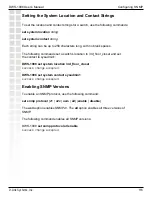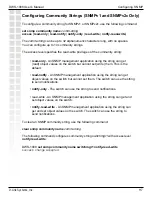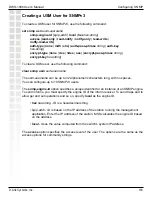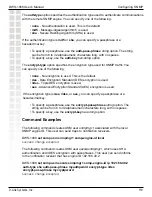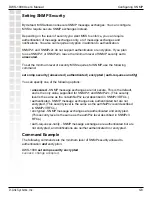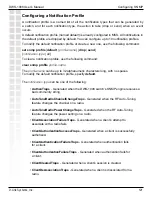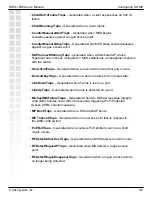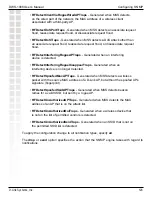
108
DWS-1008 User’s Manual
D-Link Systems, Inc.
Configuring and Managing IP Interfaces and Services
Displaying ARP Table Entries
To display ARP table entries, use the following command:
show arp
[
ip-addr
]
Here is an example:
DWS-1008#
show arp
ARP aging time: 1200 seconds
Host
HW Address
VLAN
Type
State
-------------------------------------------------------------------------------------------------------------
10.5.4.51
00:0b:0e:02:76:f5 1
DYNAMIC RESOLVED
10.5.4.53
00:0b:0e:02:76:f7 1
LOCAL
RESOLVED
This example shows two entries. The local entry (with LOCAL in the Type field) is for the
switch itself. The MAC address of the local entry is the switch’s MAC address. The ARP
table contains one local entry for each VLAN configured on the switch. The dynamic entry
is learned from traffic received by the switch. The ARP table can also contain static and
permanent entries, which are added by an administrator. The State field indicates whether an
entry is resolved (RESOLVED) or whether MSS has sent an ARP request for the entry and is
waiting for the reply (RESOLVING).
Adding an ARP Entry
MSS automatically adds a local entry for a switch and dynamic entries for addresses learned
from traffic received by the switch. You can add the following types of entries:
• Dynamic - Ages out based on the aging timeout.
• Static - Does not age out but is removed by a software reboot.
• Permanent - Does not age out and remains in the ARP table following a software
reboot.
To add an ARP entry, use the following command:
set arp
{
permanent
|
static
|
dynamic
}
ip-addr mac-addr
To add a static ARP entry that maps IP address 10.10.10.1 to MAC address 00:bb:cc:dd:ee:
ff, type the following command:
DWS-1008#
set arp static 10.10.10.1 00:bb:cc:dd:ee:ff
success: added arp 10.10.10.1 at 00:bb:cc:dd:ee:ff on VLAN 1
Changing the Aging Timeout
The aging timeout specifies how long a dynamic entry can remain unused before the software
removes the entry from the ARP table. The default aging timeout is 1200 seconds (20 minutes).
The aging timeout does not affect the local entry, static entries, or permanent entries.

